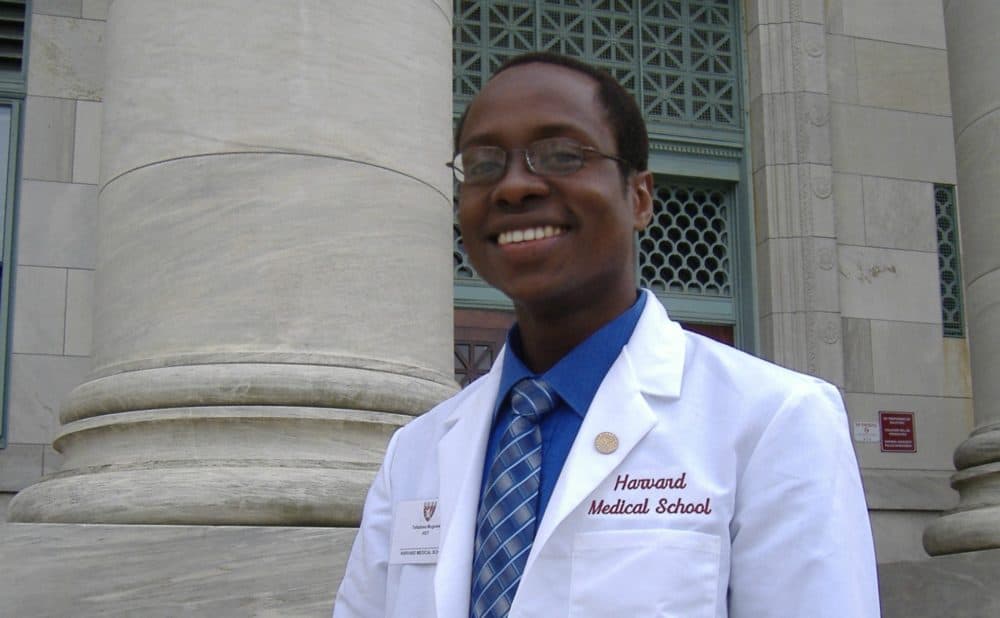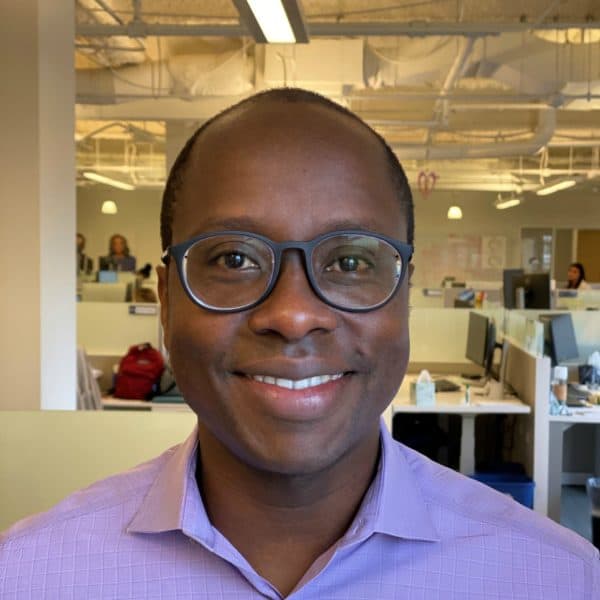Advertisement
Commentary
A Dual Degree From Oxford. A Medical Degree From Harvard. Neither Protected Me From Racism
Resume
When I began my unlikely journey from Zimbabwe to Swarthmore College, I was about as uninitiated as a Black man can be about racism.
What hole did you live in all your life, you may ask? For starters, not a “s***hole,” as POTUS once called countries like mine. Independence from Britain had made possible for me what my parents could only dream of: freedom from race-based barriers. This fact was not lost on my late father who never missed an opportunity to affirm my potential. So I decided to become a doctor.
At Swarthmore, I was routinely complimented for being articulate despite possessing "the worst British accent ever," according to a classmate who thought I was out of earshot in the library. I assigned any temporary discomforts to “culture shock,” true to the lens of an international student. Some insisted “you’re not really Black” suggesting that I didn’t fit certain stereotypes. Overall, I felt like I belonged.
After college, I attended Oxford on a Rhodes Scholarship. Ironically, Cecil Rhodes, who spearheaded Britain’s colonization of my home, was now the unwitting sponsor of my education in his. Among scholars, we indulged in the evergreen debate about Cecil’s contribution. What to do with the legacy of a benefactor whose anachronistic vision set the tone for an enduring institution? I started to critically examine my day-to-day experiences.
The patient yelled that he did not want to be seen by a Black person and demanded I leave.
Back in the U.S., an early memory from medical school was seeing a white patient after the professor left the room for a moment. "Where do you go to school?" the patient asked.
My white coat was emblazoned with "Harvard Medical School" in large red letters above the front pocket. "Harvard," I responded.
"Howard sends students here?" The patient found it easier to imagine I was visiting from the preeminent HBCU — 450 miles away — than belonging to the current institution, as embroidered on my white coat. Who, then, belongs at Harvard?
As an intern, I received a page from nursing about a belligerent elderly white patient who refused to take evening medications until he spoke to “the doctor.” I walked into the room as staff wrestled him, and the nurse identified me as the doctor who would address his concerns. The patient yelled that he did not want to be seen by a Black person and demanded I leave. I left, humiliated. Despite obvious dementia, the patient — whom I had never met — betrayed a strong visceral reaction towards me.
A patient’s prejudice can ruin my day but does not override my sense of duty towards him or her. The prejudice of a peer or authority figure, on the other hand, is more difficult to navigate.
While applying to residency, I remember huddling with classmates who were applying to the same programs. A classmate remarked that one of us would be a strong applicant because of their Ph.D., then turned in my direction and said I didn't need to worry because I was Black. Was it incomprehensible to my peers that I could perform just as well or better than them, irrespective of my race? What do my friends think? Uncertain, I retreated to collect myself in private.
Early in training, I received feedback from a professor who remarked, “Internationals like you do well on tests but struggle with clinical skills.” Ironically, I was receiving credit for testing well, but in the same breath, the goalposts were shifted. It wasn't the last time I would hear from this professor, and ultimately, these encounters proved detrimental. I wondered, what do others with influence believe? How is the institution failing people like me?
A classmate remarked that one of us would be a strong applicant because of their Ph.D., then turned in my direction and said I didn't need to worry because I was Black.
Once, a senior leader praised my team’s presentation then added, "but you’re different." Is being "different" good or unwanted? I decided not to ask, lest I exacerbated any concerns. There may have been nothing in the comment, and indeed, in many others that have given me pause.
However, over time, I've developed a sensitivity from the accumulation of these microaggressions. It's a hypersensitivity that leads me to quickly dissect seemingly innocuous situations. Like the professor who wrote my recommendation letter, but also confused me with another Black classmate for years. Or the patient who assumed I was the trainee and my white student was in charge. Or the patient’s family member who asked if I was "here to pick up the food tray," despite my doctor’s white coat. “Small” encounters leave me trying to distinguish simple ignorance from put-downs. It’s never clear-cut and so I walk through life in an exhausting state of being.
I came to the gradual realization that, far from being isolated, these experiences revealed deeply held assumptions and attitudes about me as a Black person. These attitudes constitute the scaffolding that is structural racism, which manifests daily in the lived realities of Black people.
I sometimes wonder how I would have turned out if I was born in the U.S. Frequent subtle and less-subtle messages betray the assumption that I’m lacking in smarts, untrustworthy or even a threat. These messages assault the ego, stifle creativity and blunt optimism.
Considering the legacy of slavery, mass incarceration, segregation, racism in policing and white supremacist ideology, I sincerely doubt that I could have escaped the unrelenting reach of structural racism in my early years. Many don’t. I am constantly awed by my African American friends who have only known this crucible. They are exemplars of brilliance, grace and resilience in the face of indignities.
Breonna Taylor, Tony McDade, Ahmaud Arbery, George Floyd and many others killed by the police are today’s visible victims of structural racism. Countless others are victims to less visible injustices. While it’s easier to ascribe racism to the heinous actions of a Derek Chauvin or even an Amy Cooper, there are many ways to be complicit as sponsors or beneficiaries of unjust structures.
We must dismantle racism in ourselves and all around us. Black lives depend on it and the health of our society requires it. Doctors aren’t the only ones who can save lives.
This segment aired on June 23, 2020.
